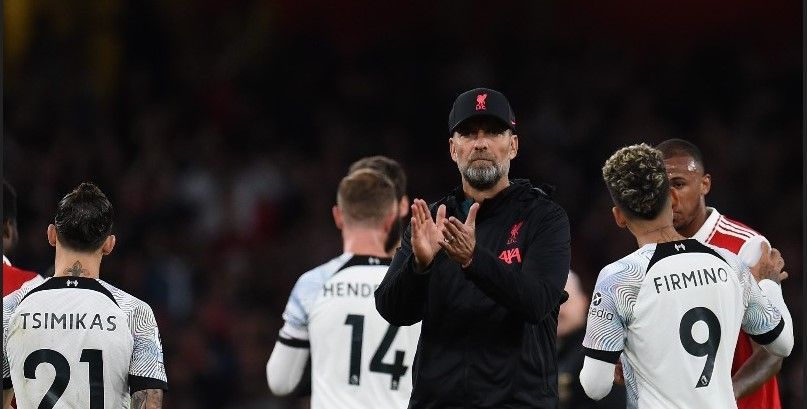An exploration of the Nigeria national team between 92-98. Yekini, Jay Jay, and Kanu.
Like many nations – football is the national sport and garners nationwide attention whenever the Super Eagles take the field. Chaos and disharmony on and off the pitch has often overshadowed Nigeria's footballing history - was that any different for this team we think of so fondly?
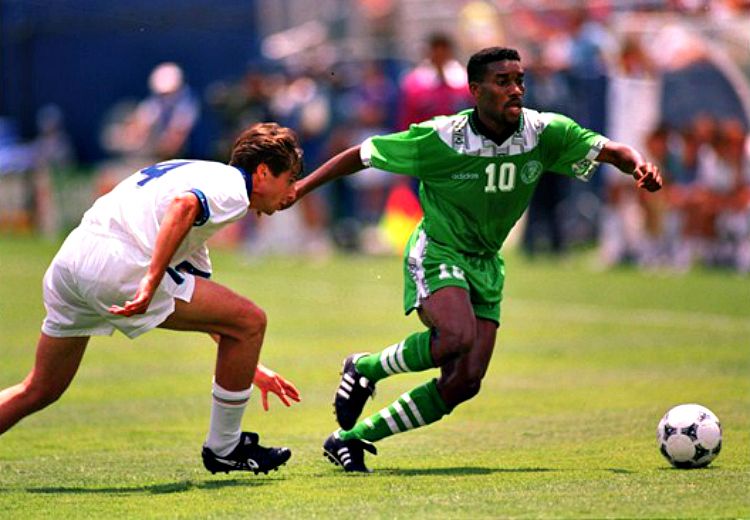
Nigeria has more English-speaking Christians than the UK. Around 50% of its population. The other roughly 50% are Muslim. With over 150 different languages represented, Nigeria is among the world's most ethnically diverse countries. Africa's biggest country by population and GDP is expected to house more than 400,000,000 by 2050. Outside her borders, millions more trace their ancestry back to its shores. Like many nations – football is the national sport and garners nationwide attention whenever the Super Eagles take the field. Chaos and disharmony on and off the pitch has often overshadowed Nigeria's footballing history - was that any different for this team we think of so fondly?
Nigeria reached its first World Cup in 1994 after years of struggling to make it to the showpiece. The route for African sides was a lot harder than today, and with the quality of play improving amongst those nations, qualification was a very competitive affair. Many will cite the arrival of Clemens Westerhof as the seed change for this Nigeria team and its current position as ever-present on the world stage. Following his appointment in 1989, Westerhof led Nigeria on an impressive run – reaching the final of the 1990 Africa Cup of Nations, third place in the 1992 edition before finally triumphing in 1994 to claim their second AFCON title. Following their success at the 1994 World Cup in the USA, Nigeria ranked as high as 5th place in FIFA's world rankings – an African nation's most elevated ever position.
One could argue that Nigeria is more famous for its failings than success. According to the Corruption Perceptions Index (CPI), an annually published index by Berlin-based Transparency International, which assesses the 'perceived levels of public sector corruption', Nigeria ranks 149 of 179 nations. I accept there is a lot to unpack in such a study – much can be said for the cronyism we have seen in UK politics over the past few months/years/insert here, but there are levels to this sh*t.
A now cliched explanation for the underachievement of African sides in major competitions, particularly Nigeria, is the constant distraction – the pull from powers at home, the unpaid bonuses, the terrible preparation. Nigeria's Men's National Team has been plagued by political interference for decades, those outstanding fees, and travel issues again. In 2019, Westerhof and some of his players finally received houses they had been promised by then military leader Sani Abacha, a quarter of a century after their AFCON success. Sani Abacha's grip over Nigeria spanned almost the exact time this team was at their pinnacle. After seizing power in 1993 through a military coup, he presided over a solemn period littered with human rights abuses, imprisonment of political opponents, silencing of the press, and the execution of the Ogoni 9 – an incident that led to Nigeria's suspension from the commonwealth in late 1995.
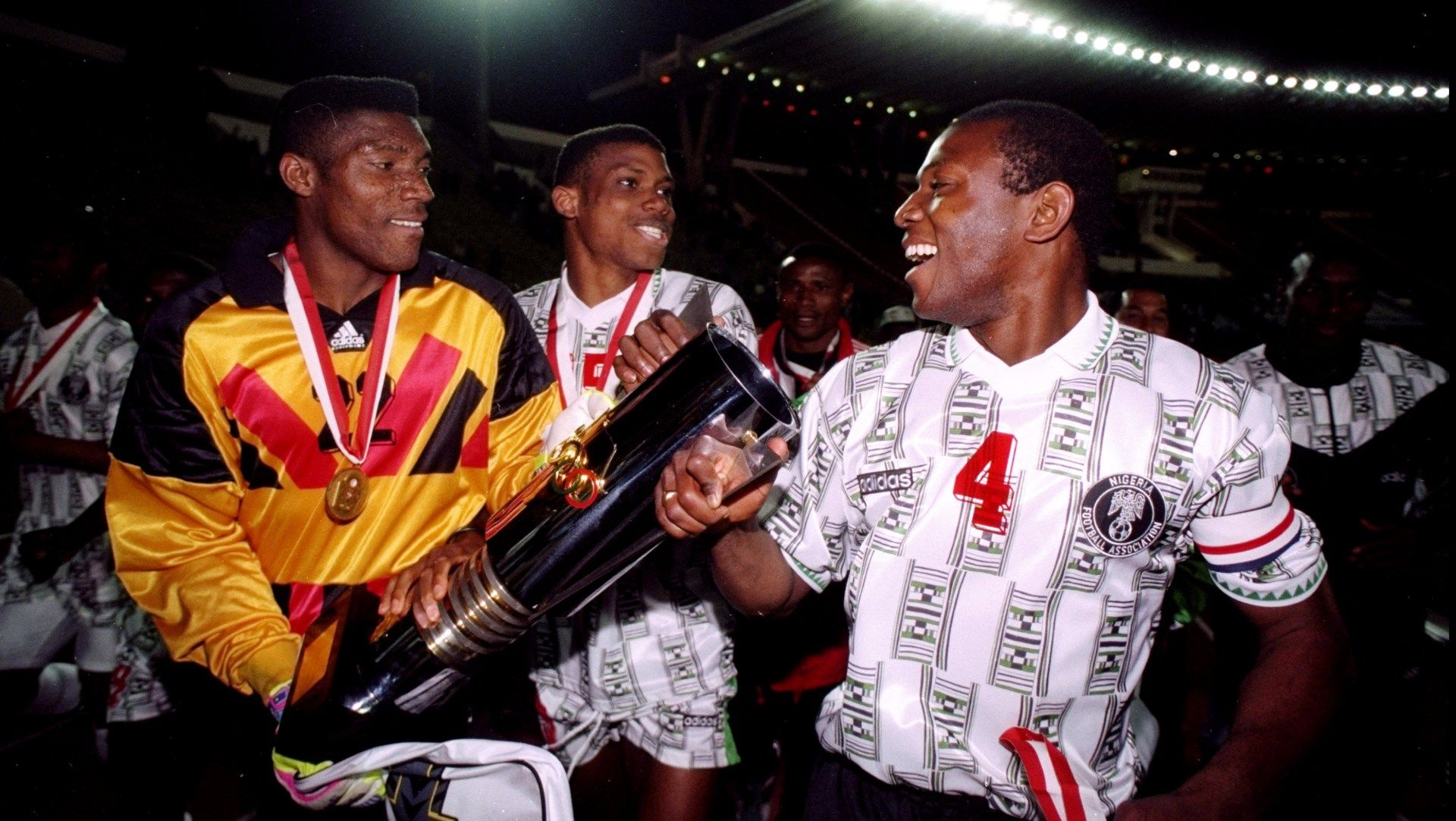
Between qualification and the final round of USA 1994, Nigeria competed in their ninth AFCON. With two second-place and one third-place finish in their last three outings, victory was long overdue. After topping their qualification group, Nigeria progressed with Egypt to the quarter-finals, comfortably beating Zaire. A tense semi-final victory over Ivory Coast settled on penalties set up a final with Zambia in Tunis. Two goals from Emmanuel Amunike, 1994 African Footballer of Year, gave Nigeria their second AFCON trophy and Westerhof's first as a manager. Nigeria's talisman in the tournament and up to 1994 was Rashidi Yekini – he finished the tournament as top goalscorer with five goals. Yekini, who, with George Weah, placed joint second in 1994 African POTY voting, is still Nigeria's record goalscorer with an impressive 37 goals in 62 games. Unlike some of his counterparts, Yekini's name has not garnered as much popularity in the UK over time. For his value to this team, he doesn't seem to get the recognition he deserves.
Born in Kaduna, northern Nigeria, Yekini scored Nigeria's first goal at a World Cup – his celebration is still an iconic WC imagine, grasping the Bulgaria net, arms outstretched, shouting for joy. Dubbed the 'Goalsfather' by reporter Mumini Alao in his December 1993 edition of COMPLETE FOOTBALL Magazine, subsequent years have seen more popular Nigerian strikers follow his mould. Think Emmanuel Emenike or Yakubu with pace. One US broadcaster decided to get his viewers up to speed in the build-up to the Bulgaria game with the line "keep your eye on number 9, that is the Hulk, Rasheed Yekini' - he was a big deal in the mid-'90s. According to teammate Sunday Oliseh, this rising status and his rising pay packet to match caused "some beef" with some of his teammates, who "were madly, sickly, mentally jealous" of his success. After Nigeria eventually fell to Italy in the second round of that world cup, he strongly criticised his manager.
"I have always been against this coach," [Westerhof] "It is no secret that I don't like him and he doesn't like me. I tried to go against him long ago, but my teammates did not support me. As a result, I was played out of the game. I never saw the ball."
Immediate reactions are rarely considered, but his unfiltered remarks aired the acrimony for all to see. Yekini, 31 at USA 1994, faded from the main stage after the WC. Unsuccessful spells in Greece and Spain preceded a return to Nigerian domestic football in 2003. He returned to the World Cup, France 1998; a much-reduced role, coming off the bench in each of Nigeria's four games. The years that followed were shrouded in mystery; reports put down his eventual death in 2012, at the age of just 46, to 'ill health'. Many accounts talk of his seclusion and erratic behaviour; his children still seek closure to the circumstances surrounding his passing. A sad end to the life of 'One the best African players ever to walk this earth'
Augustine Okocha was at the beginning of his footballing journey in 1994. The player we would affectionately say was named twice, JayJay. Then playing in Germany with Eintracht Frankfurt, and at just 20 years of age, his influence was growing. English fans were first made aware of his talents in a friendly, at Wembley, in November after the tournament. It was a strange affair – England had failed to qualify for that summer's showcase while Nigeria had taken plaudits for their splash on the international scene. Furthermore, with a vast Nigerian diaspora in the UK, this felt like more of an away game – every Okocha feint, every stepover cheered loudly by the adoring crowd. The result was inconsequential, England fortunate to prevail on the night, the headlines focused on this exciting Nigeria side and their starlet Augustine Okocha.
His talents would, of course, grace the Premier League, becoming a Bolton Wanderers legend. Before, he played in Ligue 1 with PSG, mentoring his young teammate Ronaldinho. Just think about that, a midfield consisting of Ronaldinho and Jay Jay Okocha. After leaving The Trotters, he stayed in England, gaining promotion with Hull City before retiring in 2008. Should he have won more? Probably – but there was another drive. In a 2017 FIFA.com interview, his response was revealing when asked which current players style most resembles his own.
"I'd say the player whose style most resembles mine would be Neymar. That's because I played with a sense of joy and you can see that he feels the same and really enjoys his own play."
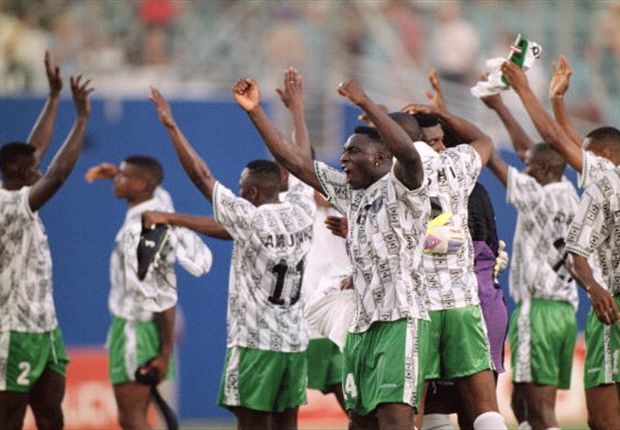
The story of the 1994 world cup has been told many times over. Topping a group that included Argentina, Bulgaria, and Greece, Nigeria became the first African side to qualify for the knockout rounds in their debut campaign. That Yekini strike and celebration mentioned above, their dominance over eventual semi-finalists Bulgaria, Daniel Amokachi's run, and powerful strike; just a few of the many memorable moments in that maiden campaign. It's the Italy game has that always piqued my interest. Eighty-nine minutes are gone, one goal up and Italy down to 10 men – should have been nine men when Maldini brought down Yekini, who was clean through in the 80th minute. An incredible opportunity to extend their American adventure, it's hard to understate what a victory over the future finalists would have done for African football. But two Roberto Baggio goals sunk Nigeria on either side of the full-time whistle, and they have not since had a better opportunity to reach the last 8. How do you deal with being so close but ultimately coming up short? Rashidi Yekini's reaction detailed earlier; Oliseh's response was more tempered.
"I have mixed feelings," "I'm disappointed that we lost, but I'm happy that we put up a good show today."
Although comments from his manager, Westerhof, would put the blame squarely at his feet.
"Sunday Oliseh played the ball through Roberto Baggio's legs and made jokes with spectators, but Baggio got the ball back and made a cross to Mossi, Mossi went with the ball to the sideline, and who was there, he found Baggio, and he crossed the ball to him.
"It was terrible. You must concentrate to the last minute. It was a loss of concentration on the part of a player, but I don't like singling out a player when we lose. Football is a team game. We lost concentration in the last minute and paid for it."
Despite Westerhof's attempts to walk back his statement immediately after making it, they further highlighted the tension between the manager and players. Daniel Amokachi, scorer of that brilliant drive against Greece earlier in the competition, would recount the dressing room scenes in an interview earlier this year.
"After the game, Emeka Ezeugo [Nigerian Defender] was the one that attacked Clemens Westerhof in the locker room. You know, because he is passionate and saw that it was a game we could have easily won."
He went onto say.
"Everybody allowed it to happen, we couldn't all get into a brawl, but everybody was upset.", "I was in tears after the game, I practically cried from the pitch to the locker room and the team Bus until we got to the hotel."
After such a crushing defeat, it is very usual for tempers to flare. But this is not an account in isolation. Westerhof fell out with Oliseh and Amunike, dropping them from the national team for spells before Nigerian Football Federation undermined his selection and reinstated the duo. His position became untenable.
The years that followed were testing for the nation. With Abacha still in power, the execution of environmental and political activist Ken Saro-Wiwa and ten others sparked an international outcry and led to Nigeria's suspension from the commonwealth. The turmoil found its way to the national team. Detailed in Donald G. McNeil Jr's NY Times report from January 1996, the teams' dreams of defending their AFCON crown were dashed. After a standoff with President Nelson Mandela, an Abacha-influenced NFF pulled the team from the competition, citing safety concerns. Unsurprisingly, Mandela would have the last laugh as tournament host South Africa went onto lift the trophy – their first AFCON triumph.
Yet amidst all the noise, Atlanta provided a tonic. For me, the 1996 Olympics Games cemented the legacy of this Nigeria side. The United States returned as their stage along with Okocha, Amunike, and Oliseh from WC'94. In came defenders Taribo West, Celestine Babayaro, and a lanky 6 foot 4 striker, Nwankwo Kanu. Arguably the most notable change was in the dugout. Westhof had been replaced by one of his assistances, Johannes Bonfrere. A former midfielder who spent his entire playing career with MVV Maastricht, Bonfrere's coaching career spanned more than three decades, managing several teams in Africa and Asia. Westerhof would go onto discuss his relationship with Bonfrere in a 2020 interview with Vanguard.
"He worked with me as an assistant at MVB in the south of The Netherlands and he did a good job with the young players. So when I needed a good trainer for the national team, the Eagles, I called him to come join me. I now regret very much that I took him to Nigeria. He is a bad man, a very bad man."
He spoke in response to accusations from Bonfrere that Westerhof had sold the WC'94 group game against Italy for $100,000. More strained relationships and infighting, it all got very messy by the end.
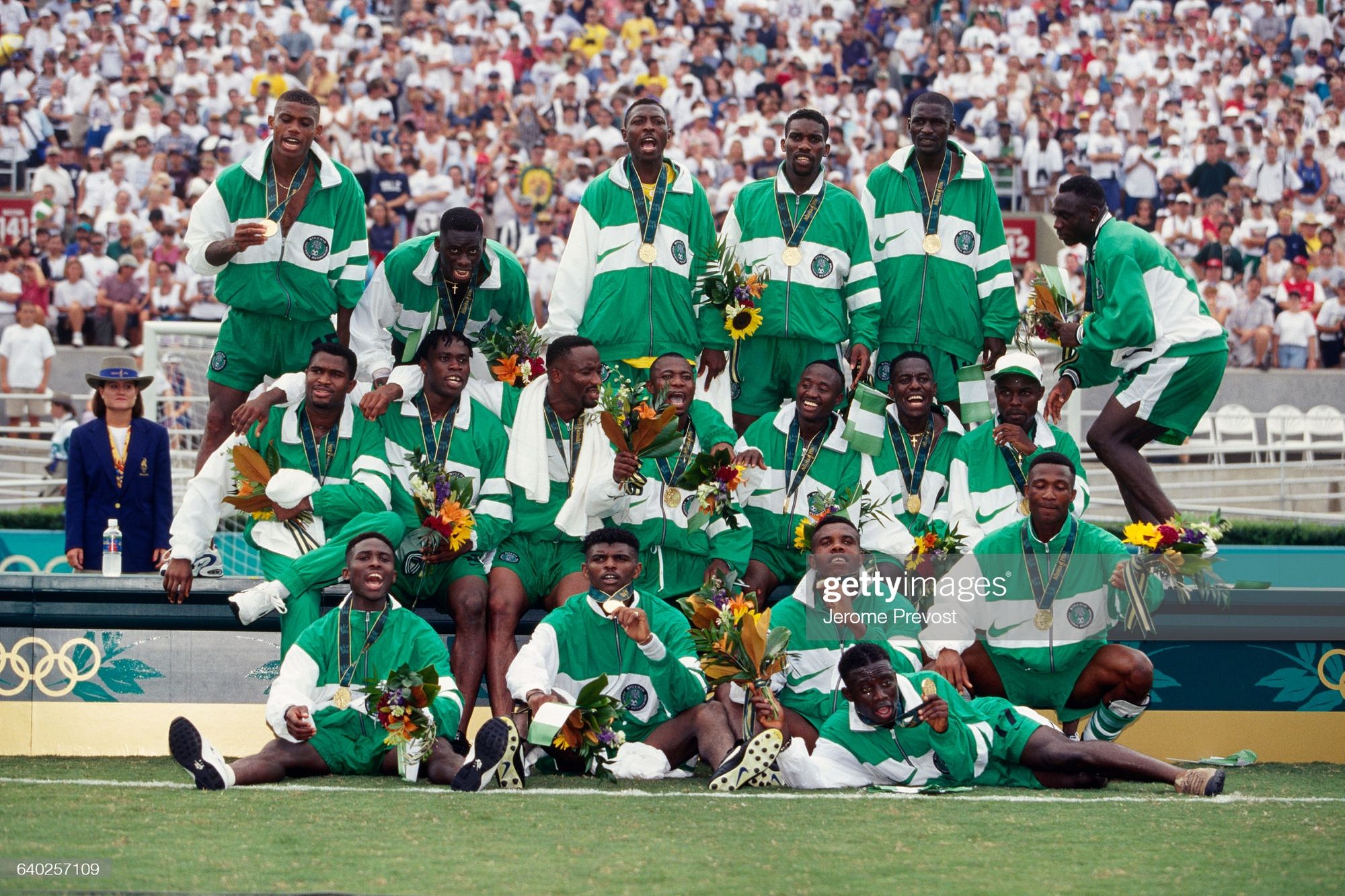
Bonfrere at least had some buy-in from his players in the lead up to the Olympic Games. Taribo West, the former Auxerre, AC Milan, and Inter Milan defender, then only 22, said of his manager in a 2016 interview with BBC Sport.
"Before the Olympics, we were well prepared in the USA. We were not distracted by the usual things we encounter back home in Nigeria, where family and friends can come and visit us in camp," "We were in a very remote place and we were very focused on the task at hand. Jo Bonfrere's preparation of the team was excellent."
According to West, at least, a rarity for Nigerian football. Good preparation, no distractions, and with the result in mind, you wonder what more this team and future generations could have achieved. They began their campaign in Miami against Hungary, Kanu leading the side out. Captain Kanu - seems strange to me reflecting on that tournament today – in a team that included key players in Nigeria's AFCON and WC successes in 1994, I was surprised to see him there at the front, with the armband in Orlando. The truth is, in 1996, at only 19 years of age, allegedly (sorry – could not help it) Nwankwo Kanu was one of the most exciting striking prospects in world football. That season, his debut with Ajax yielded an impressive 25 goals in 54 appearances and a Champions League winners medal, coming on as a substitute in their final win over A.C. Milan. Kanu had his own health issues; in November 1996, he would have his first heart surgery to correct a faulty aortic valve only discovered in September of that year. After a year out, he returned to football for Inter Milan and found further success with Arsenal and even won an FA cup final with Portsmouth, named Man of the Match. His career saw a ridiculous trophy haul, a mix of team and individual honours. UEFA Champions League, UEFA Cup, two Premier League trophies, three FA Cups, and two African Player of the Year awards. You add the Olympic Gold medal he would go onto win, and his collection puts him in rare company.
With Kanu at the helm, Nigeria qualified from their group with ease. They beat Hungary and Japan, 1-0 and 2-0 respectively - goals from Kanu in the first with Okocha sealing the win in the second after a Tadahiro Akiba's own goal against Japan. They did lose a game to Brazil, including Bebeto, Roberto Carlos, Rivaldo, and Ronaldo – yes, O Fenomino. He scored the winner, this group stage match-up providing a little appetiser for what was to come.
After Nigeria won their third game to love – 2-0 over Mexico - and Brazil triumphant 4-2 against Ghana, the two sides met again for a place in the final. Seventy-eight thousand spectators who packed the Sanford Stadium, Athens, GA, on July 31st, 1996, were treated to the greatest game of Olympic football. Brazil strolled out, all in hand as they often did in the 90s – pretournament favourites and expecting to do the double over the West African side. Action from the off, three goals scored in the opening half an hour. First Conceicao with a deflected free kick in the 1st minute; Nigeria replied with a Roberto Carlos own goal before Brazil quickly restored their lead when Bebeto followed in after Nigeria's keeper, Dosu, parried Ronaldo's strike into his path. Brazil added a third just before halftime – Conceicao again, running onto a beautiful through ball chested from Juninho before dinking it over the onrushing Dosu. With a mountain to climb, you wonder what happens in dressing rooms before a comeback. Garba Lawal, starting midfielder on the day who would make 57 appearances for his country, recalled the halftime chat in an interview with The Punch.
"The only thing I can remember was when we were losing to Brazil by three goals to one at halftime, he [Bonfere] told us that if Brazil could score three goals in the first half, we could score three goals in the second half. That was the only thing he said. He didn't blame us, and it happened that way."
Nigeria didn't hit back until the 78th minute; Ikpeba calmly slotted past the stranded Brazilian keeper, Dida, after a pass inside from Lawal. Then in the 90th minute Kanu! A Jay Jay Okocha long throw caused chaos in the Brazilian box – how could I forget about his long throws. The ball eventually squirted its way to Kanu in the six-yard area. Back to goal with Dida, on all fours and snapping at his heels, he deftly scooped the ball while turning towards goal – unbelievably, in one motion placing it over Dida, now prone, and passed the Brazilian defender on the goal line. The kind of goal only he or maybe Dimitar Berbatov could score – so calm. The skill reminded me of another Kanu classic, his audacious flick and turn away from a Spurs defender before he finished past Ian Walker in the Tottenham net. So, 3-3 it ended and onto extra time and golden goal.
In 2021 it seems mad that footballs governing bodies adopted 'next goal wins' for several years. The change introduced to address the spectacle of extra time in knockout games often stymied by fatigue and tension. It decided some of the biggest games of that era; Euro 1996 Final, 2001 UEFA Cup Final, and most famously Euro 2000, where David Trezeguet's half volley completed a stunning comeback for France. There are some similarities to that occasion; France, behind for most of the match, equalised in stoppage time at the end of the game before Trezeguet's winner devastated the Italians – the goals separated by less than 10 minutes. Only 4 minutes separated Kanu's two strikes in Georgia! He latched onto a ball that fell to him just outside the edge of the d, turned inside the Brazilian defender before lashing it past a helpless Dida.
Frantic scenes followed! Onto the final.
Same game, different day - Argentina this time, Sanford again with Pierre Luigi Collina officiating. Argentina's future historic team consisted of Daniel Ayala, Javier Zanetti, Ariel Ortega, Hernan Crespo, and even Diego Simeone, who started the game on the bench. Claudio Lopez gave the Argentines the lead before Babayaro replied with a header for Nigeria. West was responsible for the concession of a penalty which allowed Crespo to restore Argentina's advantage early in the second half. Another comeback began in the latter stages of the second half, the 78th minute, Daniel Amokachi lifting the ball over a stranded Cavallero after a scramble in the Argentina box. No extra time needed in the final. In the 90th minute, a high-risk defensive play failed to catch out the Nigerians. Argentina defenders sprinted away from their goal to leave Emmanuel Amunike free in the six-yard box. No offside flag came to their rescue as Amunike kept his nerve to finish the floated cross - Nigeria was victorious! Incredibly, they led for a total of 4 minutes in the two games against the South American giants (those being the 4 minutes of stoppage time in the final) and had bested an unbelievable list of future hall of famers.
In claiming victory, they became the first African side to win the Olympic Gold medal in football and delivered Nigeria's second-ever Olympic gold only 24 hours after women's long jumper, Chioma Ajunwa, had claimed the countries first. Sadly, confusion and disharmony are never far away – their victorious manager, Johannes Bonfrere, did not receive a medal. He told BCOS TV he was prevented from climbing the podium and was told his medal was not available. Bonfrere refused to return to Nigeria with the team, left the national side, and returned to his native Netherlands. Bonfrere ended up returning to lead the team into 2000 AFCON, a tournament that ended in disappointment. As co-host, they expected to win but were eventually beaten on penalties by their neighbours Cameroon.
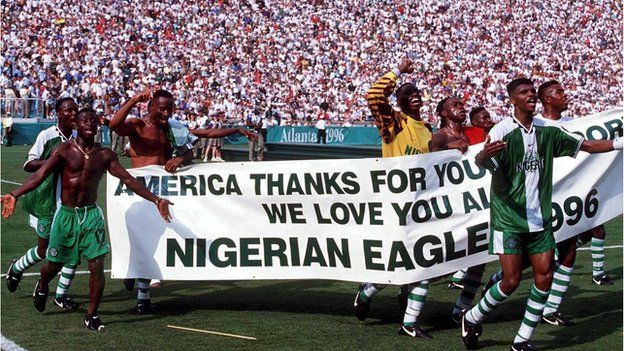
Most of this team represented the country in France in World Cup 1998, where Nigeria matched their debut campaign. Expectations were higher, and their group stage performances did much to boost the feel. A brilliant opening game victory over Spain, Oliseh's cracking long-range drive separated the two sides in a 3-2 victory. Another meeting with Bulgaria – this time, Ikpeba stylishly scored for a 1-0 win. With qualification already assured, their 3-1 defeat to Paraguay did little to dampen the mood. Unfortunately, they ran into a savvy Denmark side with Michael Laudrup in fine form. Battered 4-1, it was a very disappointing end to a tournament with so much optimism.
1998 always feels like the end of this golden team, whereas it was just the end of the success in truth. Three consecutive third-place finishes followed their 2nd place at AFCON 2002. Failure to progress from an admittedly tough group that included Argentina, Sweden, and England was compounded by the inability to qualify for the 2006 World Cup altogether. Nigeria didn't win AFCON again until 2013, by which time the team's make-up was very different. They were the team with so many firsts. That is a big reason why we adore them. That they managed to achieve a level of success despite the situation back home, or the manager turnover or the strange actions by NFF adds another sheen to their golden veneer – with solid support around them, who knows what else they could have achieved.
AFCON Runners Up 1990, AFCON Third Place 1992, AFCON Champions 1994, WC 1994 Second Round debut campaign, Olympic Gold Medallists 1996, WC 1998 Second Round.
